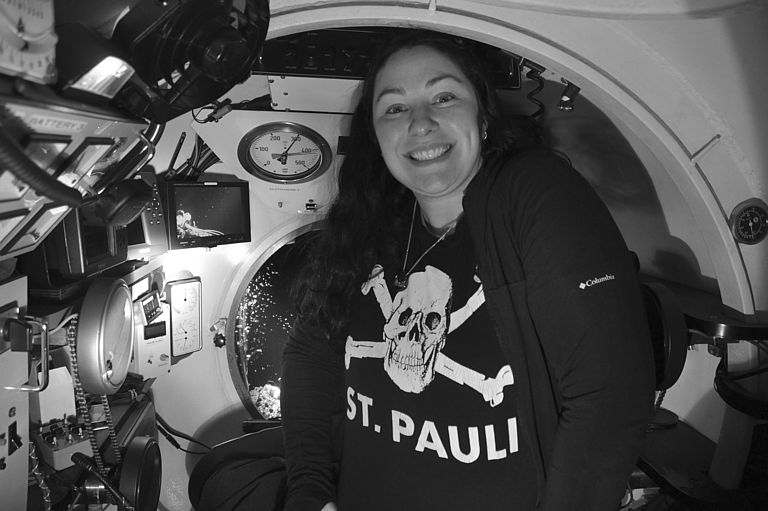Mourning for Victoria "Vicky" Bertics
Former Humboldt Fellow passed away
Vicky Bertics was born July 1, 1982 in Madison, Wisconsin, USA. In 2004 she received a dual Bachelor's degree with honors in Biology and Earth Sciences from the University of California in Berkeley. She then started her PhD thesis at the University of Southern California (USC) in the group of Prof. Dr. Wiebke Ziebis (Benthic Biogeochemistry) and received her Ph.D. in Geobiology in 2009. In early 2010, she received a postdoctoral fellowship from the Alexander von Humboldt Foundation and worked for more than two years in the group of Prof. Dr. Tina Treude (Marine Geobiology) at GEOMAR. In late 2012, she continued her work as a postdoctoral researcher at Harvard University in the research group of Peter Girguis (Deep Sea Microbiology).
Vicky Bertics devoted her work to the geobiological processes in the seabed. She began her research career with studies on the influence of bioturbation on biogeochemical processes in the ocean floor. Here she conducted studies on Catalina Island (California), at Hydrate Ridge (Oregon), and in the Gulf of Mexico. In Kiel, she focused on benthic nitrogen cycling with particular attention to nitrogen fixation in the ocean floor. With the support of the Future Ocean Excellence Cluster and the SFB 754, she compiled a study on the seasonal variation of benthic nitrogen fixation in “Boknis Eck”, Eckernförde Bay, as well as a study on the benthic nitrogen fixation in the oxygen minimum zone off Mauritania. In addition, she continued her work on methane seeps and participated in the 2011 and 2012 expeditions to Svalbard to investigate the influence of temperature changes on the stability of gas hydrates.
Vicky Bertics loved going to sea and welcomed the opportunity to participate in several dives with the U.S. submersibles "Alvin" and "Johnson Sea Link", and the German submersible "JAGO". "Everyone who knew her came to see her as a happy person and a helpful colleague," recalls Tina Treude, Head of the Marine GeobiologyGroup. "Vicky will always be missed. She definitely would have become a great professor. Her death is a great loss for our scientific community. Our condolences and deepest sympathy go out to her family."



